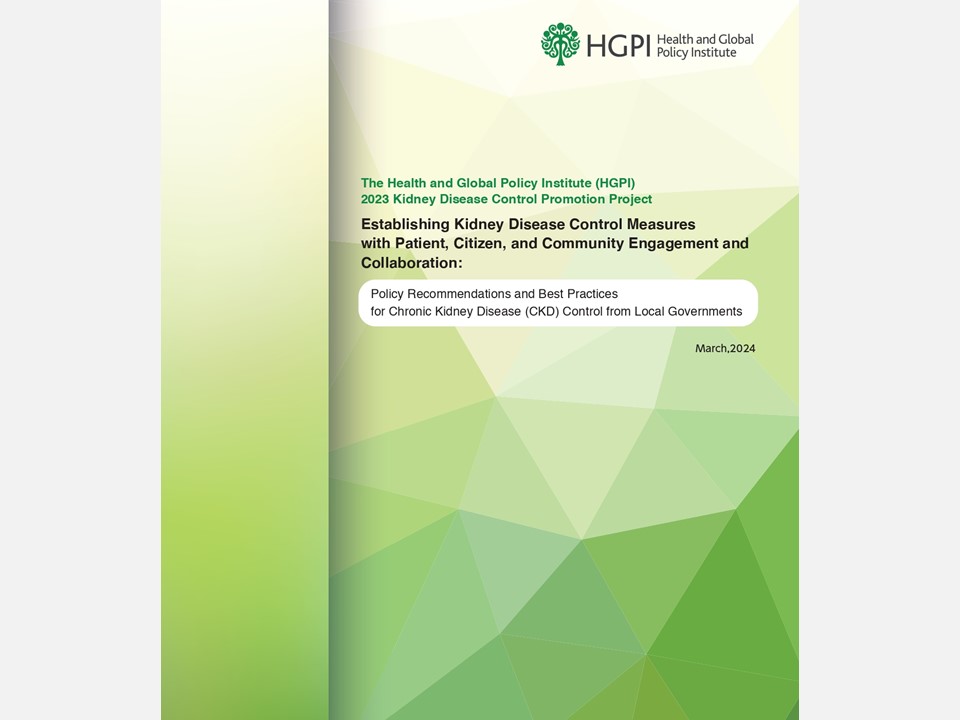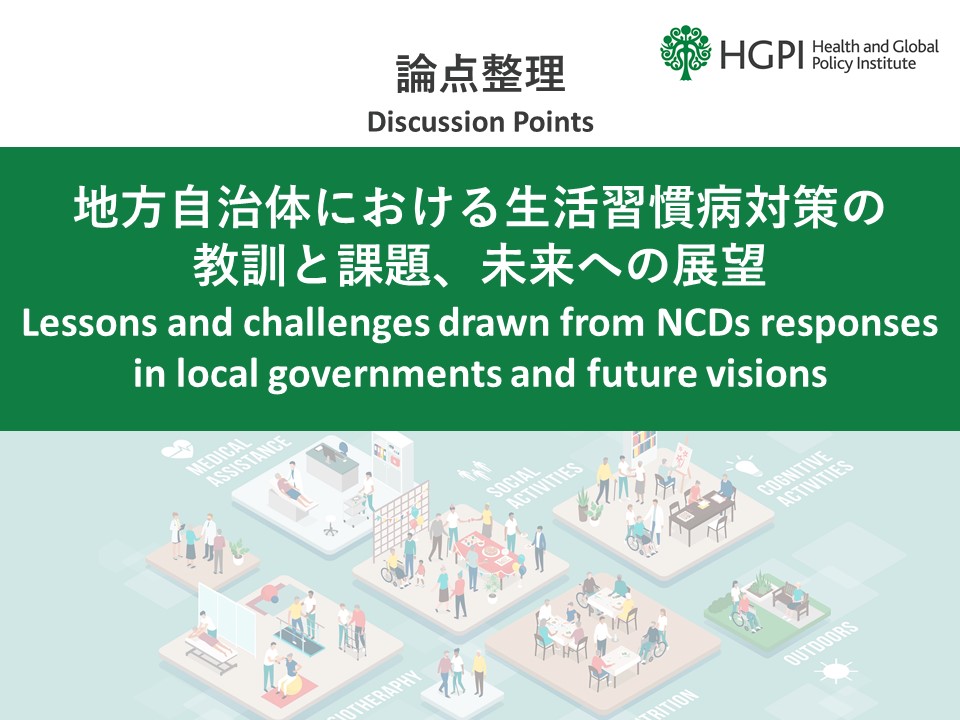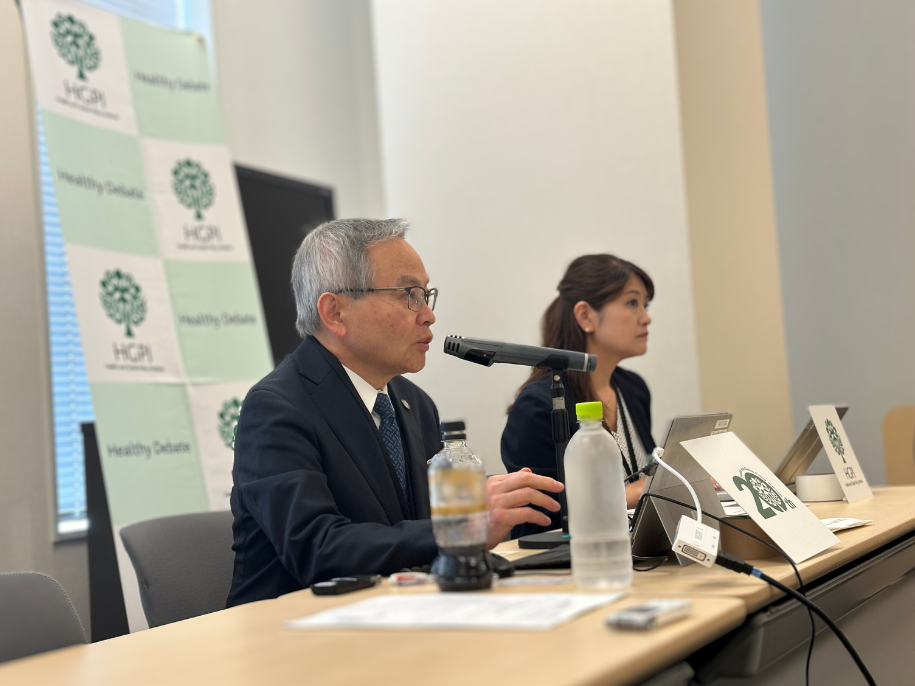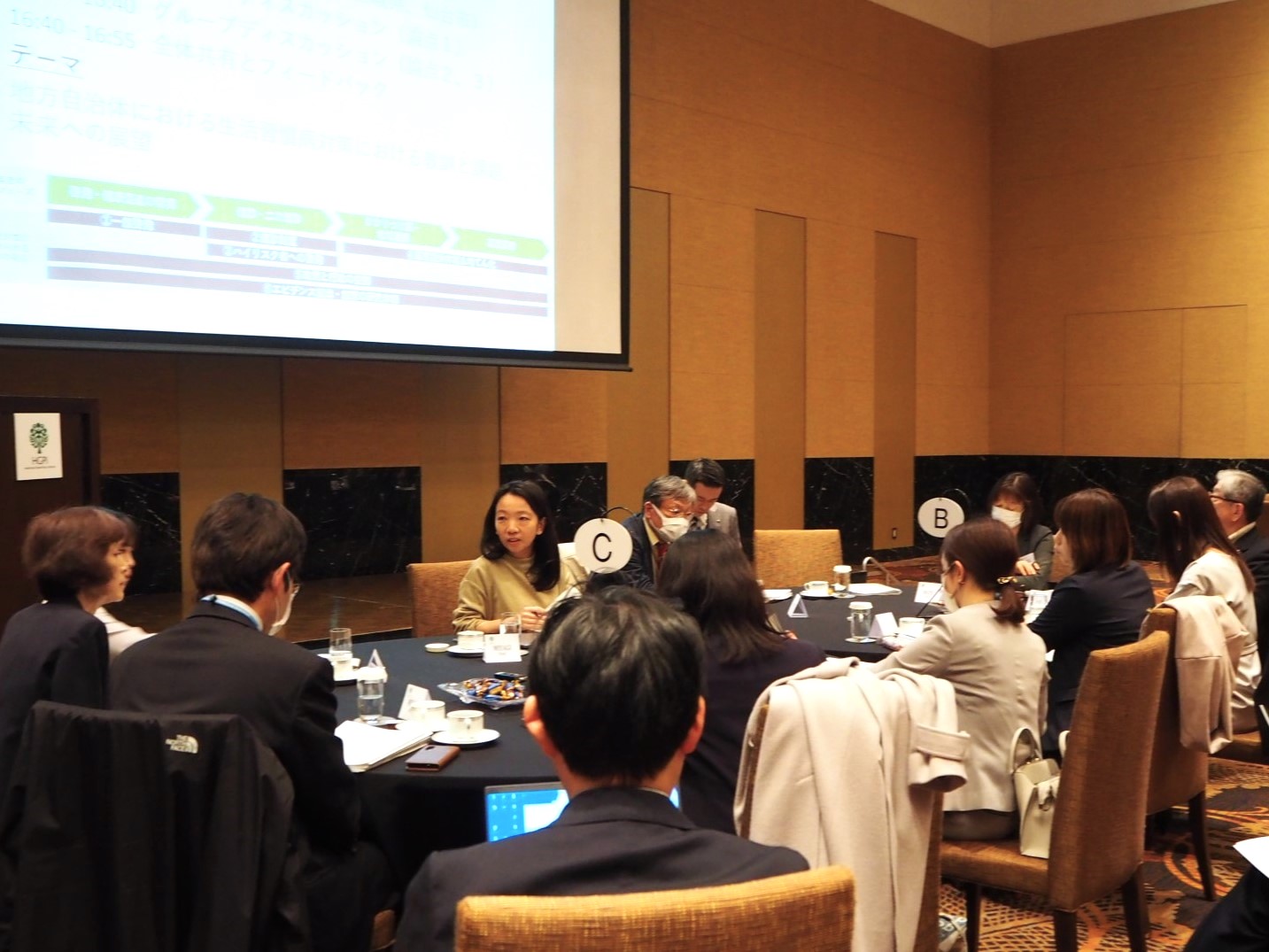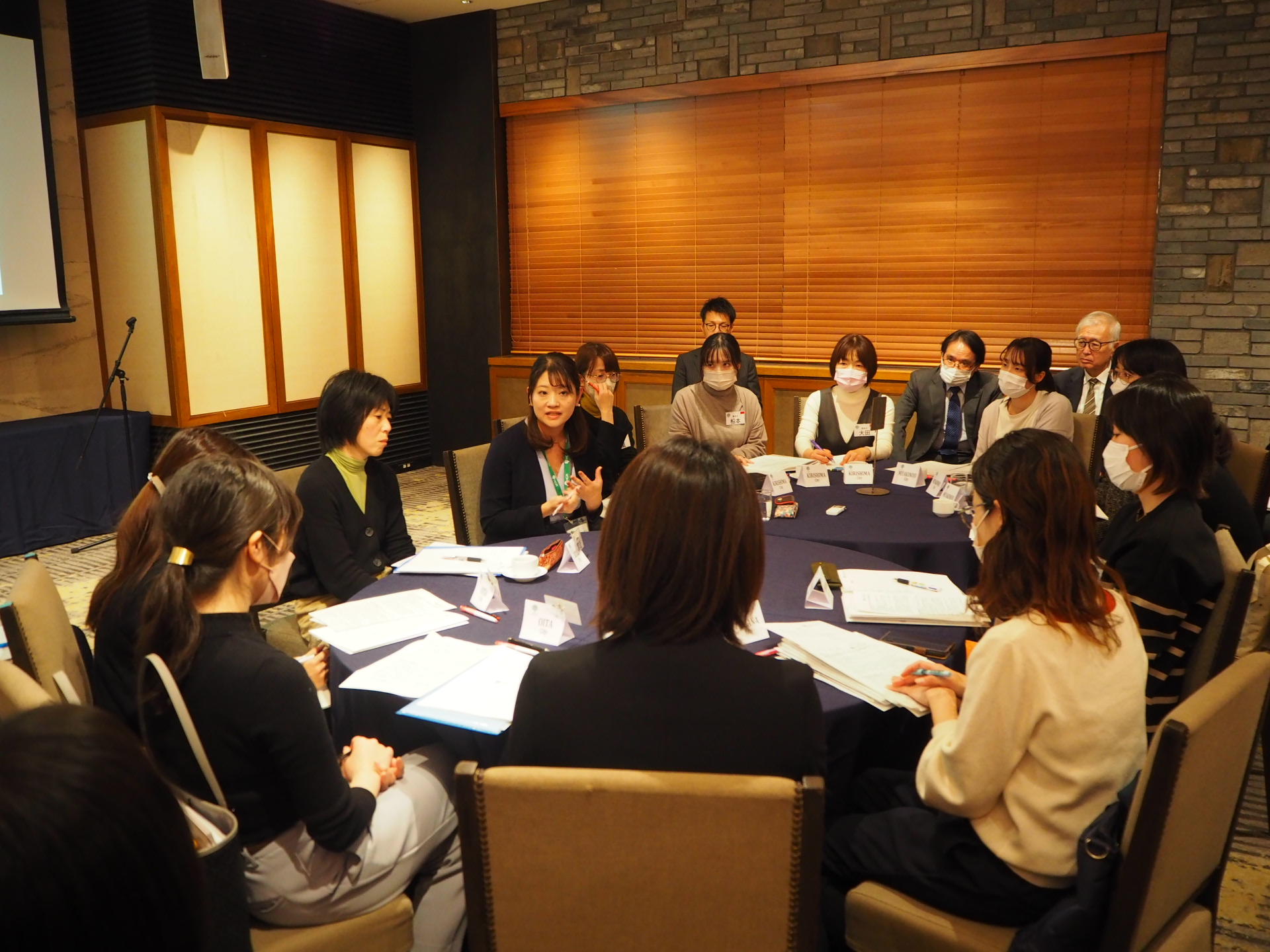[Policy Recommendations] Policy Recommendations on Strengthening CKD Strategies for Workers: The Importance of Providing Early Detection, Intervention, and Support Through Screenings and Medical Visits (October 28, 2024)
date : 12/18/2024
Tags: Kidney Disease, NCDs
![[Policy Recommendations] Policy Recommendations on Strengthening CKD Strategies for Workers: The Importance of Providing Early Detection, Intervention, and Support Through Screenings and Medical Visits (October 28, 2024)](https://hgpi.org/en/wp-content/uploads/sites/2/HGPI_20241023_FY2024CKD_eyecatch.jpg)
The English version of the report has been published. (December 18, 2024)
In 2022, Health and Global Policy Institute (HGPI) launched the “Kidney Disease Control Promotion Project” and formed a public-private-academic-civic advisory board. HGPI held meetings advocating for the importance of CKD prevention and early intervention, the significance of multidisciplinary and multisectoral collaboration, the need to expand successful local government initiatives, and the promotion of kidney disease strategies based on patient and stakeholder perspectives.
CKD is a disease that also affects the working-age population. Given that there are individuals with CKD, those at high risk, and those undergoing dialysis within the working-age population, HGPI recognizes the need to more clearly understand the current challenges in kidney disease measures and to consider practical CKD control measures and their scope for the working-age population.
This time, HGPI has compiled proposals to strengthen CKD control withing the working-age population based on interviews with experts in industry, government, academia, and civil society and thorough investigation of previous discussions.
HGPI has compiled the following two recommendations as a way of strengthening measures against CKD control within the working-age population based on detailed interviews with experts in industry, government, academia, and civil society and thorough investigation of previous discussions.
Recommendation 1: Strengthen CKD screening conducted as part of routine health checkups for workers.
- Proteinuria screening in workers should be strengthened for the early detection of CKD and people at risk of CKD, and serum creatinine testing should be performed in people with underlying diseases like diabetes or hypertension to thoroughly evaluate kidney function.
- While taking into account the fact that there is variation in proteinuria and abnormal serum creatinine levels among individuals, criteria should be defined in a manner that anyone who undergoes screening can be connected to healthcare at the time that is right for them, and further consideration should be given to expanding the scope of serum creatinine testing.
- After considering how to make the best use of health checkup results, a system should be built that smoothly guides people who need treatment to healthcare so their conditions can be managed on an ongoing basis.
Recommendation 2: Strengthen efforts to provide recommendations for medical examination and health guidance to people identified as being at risk for CKD during screening.
- Utilizing workers’ time-oriented medical examination data, employers, insurers, and primary care physicians should collaborate to effectively provide recommendations for medical examination and health guidance.
- Various actions should be taken to increase the likelihood that workers will seek medical consultations and begin treatment. Employers should select nearby clinics to partner with. Systems should be established for smooth collaboration among physicians who perform detailed medical examinations and industrial physicians or employers. Systems should also be established to educate health professionals and provide follow-up to ensure that people who receive medical examinations are guided to treatment.
- With close collaboration among specialists in kidney diseases, epidemiology, and public health, more robust evidence on items such as real-world circumstances surrounding CKD among workers and the significance of early screening should be generated.
Furthermore, the latter half of this recommendation paper presents HGPI’s perspective and understanding of previous policy discussions on this topic, as well as our outlook for future policy development. For more details, please review the PDF file at the end of this document.
Top Research & Recommendations Posts
- [Policy Recommendations] The Path to a Sustainable Healthcare System: Three Key Objectives for Public Deliberation (January 22, 2026)
- [Research Report] Perceptions, Knowledge, Actions and Perspectives of Healthcare Organizations in Japan in Relation to Climate Change and Health: A Cross-Sectional Study (November 13, 2025)
- [Research Report] The 2025 Public Opinion Survey on Healthcare in Japan (March 17, 2025)
- [Policy Recommendations] Reshaping Japan’s Immunization Policy for Life Course Coverage and Vaccine Equity: Challenges and Prospects for an Era of Prevention and Health Promotion (April 25, 2025)
- [Research Report] The 2023 Public Opinion Survey on Satisfaction in Healthcare in Japan and Healthcare Applications of Generative AI (January 11, 2024)
- [Research Report] AMR Policy Update #4: Cancer Care and AMR (Part 1)
- [Policy Recommendations] Developing a National Health and Climate Strategy for Japan (June 26, 2024)
- [Public Comment Submission] “Assessment Report on Climate Change Impacts in Japan (Draft Overview)” (December 24, 2025)
- [Research Report] Survey of Japanese Physicians Regarding Climate Change and Health (December 3, 2023)
- [Research Report] The Public Opinion Survey on Child-Rearing in Modern Japan (Final Report) (March 4, 2022)
Featured Posts
-
2026-01-09
[Registration Open] (Hybrid Format) Dementia Project FY2025 Initiative Concluding Symposium “The Future of Dementia Policy Surrounding Families and Others Who Care for People with Dementia” (March 9, 2026)
![[Registration Open] (Hybrid Format) Dementia Project FY2025 Initiative Concluding Symposium “The Future of Dementia Policy Surrounding Families and Others Who Care for People with Dementia” (March 9, 2026)](https://hgpi.org/en/wp-content/uploads/sites/2/dementia-20260309-top.png)
-
2026-02-05
[Registration Open] (Webinar) The 141st HGPI Seminar “Current Status and Future Prospects of Korea’s Obesity Policy: Voices of People with Lived Experience in Policy Promotion” (March 3, 2026)
![[Registration Open] (Webinar) The 141st HGPI Seminar “Current Status and Future Prospects of Korea’s Obesity Policy: Voices of People with Lived Experience in Policy Promotion” (March 3, 2026)](https://hgpi.org/en/wp-content/uploads/sites/2/hs141-top-1.png)
-
2026-02-06
[Research Report] AMR Policy Update #5: Cancer Care and AMR (Part 2)
![[Research Report] AMR Policy Update #5: Cancer Care and AMR (Part 2)](https://hgpi.org/en/wp-content/uploads/sites/2/HGPI_20260204_AMR-Policy-Update-5.png)




